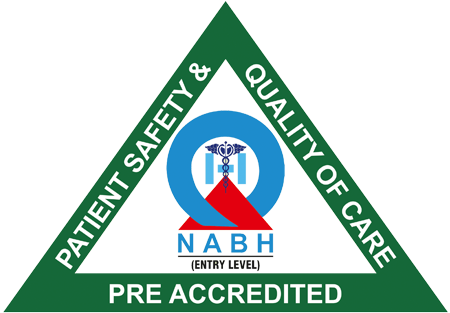Did you know that more women today are deciding to have babies after the age of 35 than in the past? For many, this is an exciting time when they feel ready emotionally and financially to start or grow their family. But if you’re considering having a baby after 35, you might have questions like, “Is it safe for me and my baby?” or “Are there certain risks I should know about?”
The good news is that having a healthy pregnancy after 35 is very possible with the right care and precautions. This article is here to guide you through everything you need to know. We’ll explain how age affects your fertility, what risks exist, and how you can best prepare for a healthy and joyful pregnancy.
Is it Safe to Get Pregnant After 35?
Yes, pregnancy after 35 is safe. Many women in their late 30s or even early 40s have perfectly healthy pregnancies and babies. That said, it’s important to acknowledge that as we grow older, our bodies go through changes that might make pregnancy a bit trickier. The key to a safe pregnancy lies in understanding these changes and managing them with good medical care.
- Statistics
You might have heard about fertility declining with age, and while that’s true, it’s not the whole story. Studies show that around 80% of women aged 35-39 conceive within a year of trying naturally. After 40, this percentage does decrease, but thanks to advances in medicine, assisted reproductive treatments like IVF can significantly boost these chances. Women in their late 30s and 40s are also increasingly opting for fertility preservation, like freezing their eggs for later use, which can make conceiving possible even later in life.
- Medical Perspective
Doctors often reassure patients that age alone doesn’t determine how healthy your pregnancy will be. What matters is your overall health! If you’re in good shape, eat well, and don’t have chronic conditions like diabetes or high blood pressure, your chances of a safe pregnancy improve dramatically. Regular check-ups, ultrasounds, and discussions with your doctor can help detect and solve any issues early on.
How Does Age Affect Fertility?
While many women conceive naturally after 35, it’s important to understand how aging impacts your fertility to better plan your pregnancy.
Egg Quality & Quantity Decline
A woman is born with all the eggs she will ever have, and as she ages, this reserve starts to decline. Not only do the number of eggs reduce, but the quality of eggs also changes with time. This is why older eggs are more likely to have chromosomal abnormalities. This can sometimes make conceiving harder or increase the chances of miscarriage.
For example, compared to younger women, a woman at 35 has a slightly higher risk of having an egg with incorrect chromosomes, potentially leading to conditions like Down syndrome.
Ovulation Changes & Irregular Cycles
Your hormones control ovulation, and as you age, your hormonal balance shifts. This can lead to less predictable ovulation or irregular menstrual cycles. If you’re trying to get pregnant, it might help to track your ovulation carefully using apps, ovulation predictor kits, or fertility tracking charts.
Impact on Conception Rates
The chances of getting pregnant during each menstrual cycle reduce as you age. For women in their late 20s, the chance of conceiving naturally in a month is about 25-30%. By your mid-30s, this drops to 15-20%. Don’t worry though! Tools like IUI (intrauterine insemination) or IVF can make conception more likely.
Remember, your body isn’t “working against you”—it’s just going through natural changes. Understanding these changes helps you work with your body more effectively.
What Are the Risks of Pregnancy After 35?
While most pregnancies later in life are healthy, it’s important to be informed about potential risks so you can take steps to reduce them.
Increased Risk of Pregnancy Complications
Older women may face higher rates of issues like miscarriage, gestational diabetes, and placenta problems. This doesn’t mean these will happen to you, but it’s vital to attend all prenatal appointments to monitor your progress and address concerns early.
Higher Chances of High Blood Pressure & Preeclampsia
Pregnancy can sometimes elevate your blood pressure, and the chances of preeclampsia (a serious condition causing high blood pressure and organ damage) are somewhat higher after 35. Managing your weight, avoiding high-sodium foods, and staying active can help keep your blood pressure in check.
Increased Need for C-Section or Assisted Delivery
Labor can take longer in older moms, and doctors may recommend cesarean sections (C-sections) or assisted deliveries like vacuum or forceps. However, many women still have normal vaginal births with proper care and preparation.
Genetic Risks & Screening Tests
Doctors often recommend genetic testing for women over 35. Tests like the Non-Invasive Prenatal Test (NIPT), combined with ultrasounds, can give you early insights into your baby’s health and detect conditions like Down syndrome. These screenings are simple and safe, giving you peace of mind or time to prepare.
Being informed is the best way to feel confident when navigating these risks.
What Are the Benefits of Pregnancy After 35?
The great news? Pregnancy after 35 can bring some unique benefits compared to earlier pregnancies.
Emotional & Financial Stability
Many older moms feel more ready to take on motherhood because they’ve had time to establish their careers, build financial security, or grow emotionally. For example, a mom-to-be who spent her 20s climbing the career ladder might feel more relaxed taking maternity leave and focusing on her child.
More Health Awareness & Prenatal Care
Older moms often prioritize their health more seriously. Many attend all their prenatal check-ups, follow dietary advice, and stay physically active. This awareness helps reduce risks and ensures a healthier pregnancy.
Career & Personal Readiness
Some women may wait until their 30s to settle into their careers, and relationships, or achieve personal milestones. Feeling fulfilled in these areas can create a calm and joyful environment for bringing a baby into your life.
Advancements in Fertility Treatments
Fertility technology, like IVF, has come a long way. Today, women over 35 have access to treatments that weren’t readily available a decade ago. This gives today’s moms even more options to start families when they’re ready.
Age can bring wisdom and a sense of fulfillment, which benefits both you and your baby.
Tips for a Healthy Pregnancy After 35
Here are some practical tips to help you enjoy a healthy pregnancy at any age.
Preconception Planning & Medical Check-ups
Before trying to get pregnant, visit your doctor. They can assess any potential health issues and recommend steps to boost your fertility, such as tracking ovulation or addressing nutrient deficiencies.
Healthy Diet & Prenatal Vitamins
Load up on wholesome foods like fresh fruits, leafy greens, and whole grains. Add prenatal vitamins containing folic acid, calcium, and DHA. These are crucial for your baby’s brain and spine development.
Regular Exercise & Weight Management
Walking, swimming, or prenatal yoga can keep you fit without straining your body. Exercise can prevent excess weight gain, which helps avoid complications.
Managing Stress & Mental Health
Take time for yourself. Listen to calming music, practice mindfulness, or talk openly about your feelings with loved ones. If you need extra help, consider speaking with a therapist.
Understanding When to Seek Fertility Assistance
If you’ve been trying for over 6-12 months, don’t hesitate to consult a fertility specialist. The earlier you seek help, the better your chances of success with treatments.
For expert prenatal care and personalized pregnancy support, visit one of the Best Hospitals in West Marredpally. Book your consultation today and take the first step toward a healthy and happy pregnancy!
Fertility Treatments & Options for Women Over 35
If conceiving is taking longer than expected, fertility treatments can help.
When to See a Fertility Specialist?
If you’re over 35, doctors recommend seeking help after six months of unsuccessful attempts to conceive. It’s nothing to worry about; specialists can help create a customized plan.
IUI vs. IVF
IUI places sperm directly in your uterus, increasing the chance of fertilization. IVF, on the other hand, combines eggs and sperm in a lab to create embryos, which are then implanted. IVF is often more effective for women over 35.
Egg Freezing & Egg Donation
Planning for pregnancy later in life? Freezing your eggs in your younger years gives you more flexibility. If your egg quality is low, egg donation is another way to experience pregnancy.
Success Rates of Fertility Treatments Over 35
Success rates for IVF are 40% for women aged 35-37. Some clinics report even higher rates with modern technology, giving hope to many couples.
Don’t hesitate to explore your options.
FAQ’s
- Is it harder to get pregnant after 35?
Yes, fertility decreases with age, but natural pregnancy is still possible for many women. - What are the chances of getting pregnant after 35 naturally?
About 15-20% per month, depending on health and cycle regularity. - Can I have a normal delivery after 35?
Definitely. Many women over 35 have healthy vaginal deliveries with the right care. - How can I improve my fertility after 35?
Eat balanced meals, stay active, sleep well, and see your doctor for personalized advice. - Should I consider genetic screening?
Yes, it helps detect chromosomal problems early for better preparation.
Conclusion
Pregnancy after 35 can be one of the most rewarding experiences of your life. Sure, it has its challenges, but with the right care, lifestyle changes, and medical support, you can ensure a healthy and wonderful pregnancy.
Thinking about starting or growing your family after 35? Talk to your doctor today at Shenoy Hospitals to create a plan that works best for YOU.
Share:



